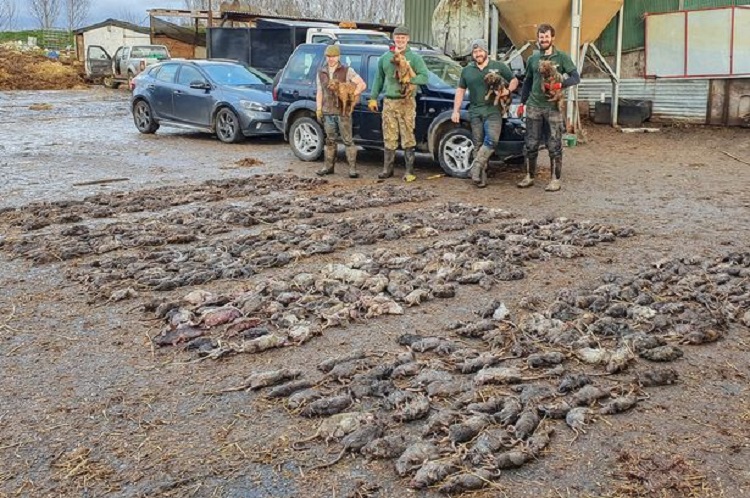The Natural Resources Institute is part of a new European consortium investigating how rodents spread diseases on livestock farms and generating knowledge to develop future strategies to protect farm animals from rodent pest problems.
 The research project, Future Rodent Management for Pig and Poultry Health (RodentGate), has secured 1.5 million euros funding from the ERA-NET (European Research Area Networks) fund for International Coordination of Research on Infectious Animal Diseases.
The research project, Future Rodent Management for Pig and Poultry Health (RodentGate), has secured 1.5 million euros funding from the ERA-NET (European Research Area Networks) fund for International Coordination of Research on Infectious Animal Diseases.
NRI’s funding comes directly through UKRI (BBSRC) – UK Research & Innovation Biotechnology and Biosciences Sciences Research Council. The consortium includes partners from Belgium (University of Antwerp), the Netherlands (Dutch Pest & Wildlife Expertise Centre), Germany (Julius Kühn Institute) and Poland (National Veterinary Research Institute).
In and around farm buildings, rodents are not only pests, they’re dangerous pests. Apart from consuming and spoiling animal feed and damaging infrastructure, they present a considerable threat to animal and human health, causing direct stress to pigs and poultry and carrying pathogens (organisms that cause disease).
These include serious diseases like Swine dysentery, Aujeszky's Disease – a contagious viral disease that harms pigs, PCV2 (porcine circovirus type 2) and Encephalomyocarditis, which in pigs is a significant viral infection.
Wild brown rats can carry Influenza A and might act as an intermediary for the transmission of avian influenza between wild birds and poultry. For some other diseases like African Swine Fever (ASF), rodents may act as ‘mechanical transmitters’ (a phrase describing an infected animal that can spread the disease without becoming directly infected by it), or they may carry ticks that can transmit ASF.
Rodents also play a role in spreading diseases like leptospirosis, more commonly known as Weil’s disease, salmonellosis, or antibiotic resistant bacterial strains such as livestock associated MRSA.
Rodents can pick up the infection from infected pigs or poultry and spread it within and between farms, they can act as a bridge between wild fauna and livestock, and they can maintain the infection locally even when a farm is emptied and decontaminated after a disease outbreak or livestock turnover.
Some of these diseases can go on to infect humans, for example new strains of influenza, and rodents could facilitate the spill-over of novel diseases such as other corona viruses.
Thus, there are very good reasons for rodent management on pig and poultry farms. An important approach has always been the use of rodenticides which are commonly referred to as rat poison. However, concerns about the environmental safety of the most common rodenticides has led to changes in European and national regulations that restrict their use and pose new challenges for efficient rodent management on farms. There is also the problem of rodents developing resistance against these poisons.
The NRI team is led by Professor Steve Belmain, who together with colleagues Judy Bettridge, Dan Bray, Sophie Bouvaine and Goncalo Silva, will look at how different farm rearing practices may impact on the prevalence of rodent-borne diseases, and will examine the relationship between farm activities and disease incidence.
They will explore rodent movements, and their interactions with farm animals. A better understanding of the eco-epidemiological dynamics of rodents and livestock is expected to lead to more sustainable rodent management methods, with reduced reliance on use of poisons.
To find out more about:
Future Rodent Management for Pig and Poultry Health (RodentGate)
ERA-NET fund for International Coordination of Research on Infectious Animal Diseases

